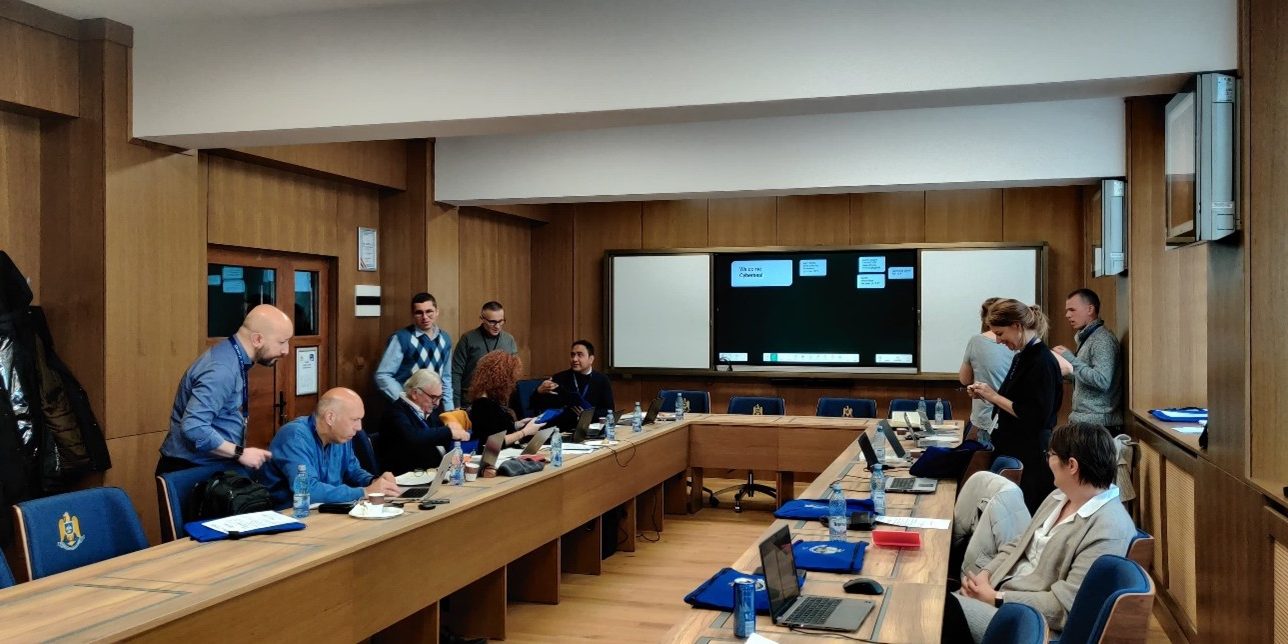We Research: Strengthening Maritime Cybersecurity through Education and Awareness
Most of Finland's exports and imports are transported by sea, making maritime transport a crucial part of the country's economy and security of supply. With digitalization, maritime technological systems have advanced rapidly, but this has also introduced new cyber threats, making their prevention increasingly important.

Ship navigation systems, port logistics systems, and maritime communication networks are all vulnerable to cyber threats, requiring continuous skill development and enhanced cybersecurity capabilities for seafarers to mitigate risks. The scope of cyber threats has expanded from traditional technical disruptions to increasingly complex and globally impactful risks. For example, GPS interference and other cyberattacks have become more common in the Baltic Sea in recent years, raising serious concerns about maritime safety. This development highlights the urgency and importance of cybersecurity training and awareness across all aspects of the maritime sector.
SAMK is actively contributing to the improvement of maritime cybersecurity through the CyberSEA project, which examines cybersecurity risks, vulnerabilities, and best practices in the maritime sector. A comprehensive literature review has been conducted, forming the core basis of the research by compiling extensive existing research materials and industry practices. This review has provided a clear understanding of the current state of maritime cybersecurity and emerging trends in the field.
Based on the collected data, the project is also developing a maritime cybersecurity training program, as well as remote laboratories and virtual learning environments where cyber threats can be simulated and analyzed. These initiatives aim to enhance the cybersecurity skills of cadets and seafarers, thereby improving the overall cybersecurity level of the whole maritime industry.
Collaboration Between Organizations is Essential
The success of the CyberSEA project is based on close international cooperation. In addition to SAMK, the project includes eight partners from seven different countries, bringing together a wide range of expertise and diverse perspectives on cybersecurity development. The international partner network adds significant value to the project's outcomes, as the developed training programs, remote laboratories, and cybersecurity practices can be applied to various operational environments and needs across different countries. This multinational approach ensures the broad applicability of solutions in the European maritime sector. Collaboration not only strengthens the project's impact but also supports the harmonization of cybersecurity measures and the enhancement of cybersecurity capabilities across borders.
The CyberSEA project partners met in January at the Mircea cel Bătrân Naval Academy in Constanța, Romania, to discuss the project's progress and upcoming priorities. The meeting provided an excellent opportunity to exchange experiences and ideas on developing cybersecurity training materials and learning environments. Additionally, concrete steps were defined for the pilot phase of the training programs and remote laboratories.
Did you know this?
- GPS interference has increased significantly in recent years, particularly in the Mediterranean, Black Sea, and Baltic Sea regions.
- CyberSEA – Increasing Cyber Security at SEA through digital training (Duration: 01.09.2023 – 31.08.2026) is an EU-funded project under the Erasmus+ program.
- In addition to SAMK, the project includes eight other organizations from seven different European countries: UPC, IDEC, Spinaker, RNA, BSBI, C4FF, MUS, HMU
The CyberSEA - Increasing Cyber Security at SEA through digital training project is co-funded by the European Union. The opinions and points of view expressed (in this press release/publication/etc.) commit only the author(s) and not necessarily those of the European Union or of the Spanish Service for the Internationalisation of Education (SEPIE). Neither the European Union or the SEPIE National Agency can be considered responsible for them.
Project Number: 2023-1-ES01-KA220-VET-000159793

